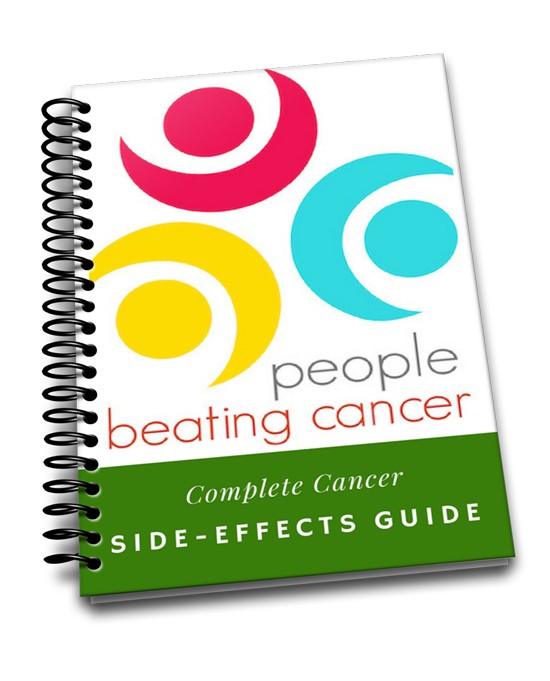
Recently Diagnosed or Relapsed? Stop Looking For a Miracle Cure, and Use Evidence-Based Therapies To Enhance Your Treatment and Prolong Your Remission
Multiple Myeloma an incurable disease, but I have spent the last 25 years in remission using a blend of conventional oncology and evidence-based nutrition, supplementation, and lifestyle therapies from peer-reviewed studies that your oncologist probably hasn't told you about.
Click the orange button to the right to learn more about what you can start doing today.
- You are here:
- Home »
- Blog »
- Healthy Living Products »
- Multiple Myeloma – Resveratrol enhance Adiamycin Efficacy, Reduce Toxicity
Multiple Myeloma – Resveratrol enhance Adiamycin Efficacy, Reduce Toxicity

“Resveratrol and quercetin, two polyphenols that have been widely studied for their health properties, may soon become the basis of an important new advance in cancer treatment, primarily by improving the efficacy and potential use of an existing chemotherapeutic cancer drug
I am a long-term survivor of multiple myeloma (MM). I underwent induction therapy from 4/95-8/95 to prepare me for an autologous stem cell transplant. On January 2, 2019, I was diagnosed with chemotherapy-induced cardiomyopathy. Thats a fancy term that means my induction therapy and autologous stem cell transplant caused late stage heart damage. The study linked and excerpted below is saying that resveratrol and quercitin could have prevented that heart damage…
Better late than never, right? The fact that conventional oncology is just now learning that there are many anti-oxidant supplements such as resveratrol and quercetin that both enhance adriamycin while reducing it’s toxicity is a good thing for future cancer patients.
- “significantly reduces the cardiac toxicity of Adriamycin,” is not new…
- “synergistic effect” is not new…
- ” these natural polyphenols could have value in cancer therapy by themselves” is not new…
- “taken as supplements reach only a tiny fraction of the level that’s possible with direct injection” is not completely correct…
- Pubmed lists many studies documenting resveratrol reducing adiamycin’s cardio-toxicity-
- Pubmed lists many studies documenting how resveratrol ENHANCES chemo and radiation–
- Pubmed lists many studies documenting the ability of resveratrol to act synergistically
I supplement with Life Extension Optimized Resveratrol for several reasons. The resveritrol supplement that I take also contains 150 mg of quercetin and has been evaluated and approved by Consumerlab.com
I am a long-term multiple myeloma survivor and MM cancer coach. I wish I knew about integrative therapies when I was first diagnosed.
Scroll down the page, post a question or comment and I will reply to you ASAP.
Thank you,
David Emerson
- Multiple Myeloma Survivor
- MM Cancer Coach
- Director PeopleBeatingCancer
Recommended Reading:
- Autologous Stem Cell Transplant Lowers Testosterone in Multiple Myeloma Patients
- Multiple Myeloma- Stem Cell Harvest, HBOT, Autologous Stem Cell Transplant
- Clinical Trials for Low-dose Lenalidomide (Revlimid) are Inaccurate
Resveratrol, quercetin could provide new options for cancer therapy
“Resveratrol and quercetin, two polyphenols that have been widely studied for their health properties, may soon become the basis of an important new advance in cancer treatment, primarily by improving the efficacy and potential use of an existing chemotherapeutic cancer drug…
The resveratrol and quercetin then appear to reduce the cardiac toxicity of a very widely used cancer drug, Adriamycin. Although highly effective in the treatment of lymphomas, breast, ovarian and other cancers, Adriamycin can only be used for a limited time in humans because of its cardiotoxicity…
The co-administration of high levels of resveratrol and quercetin, in both in vitro and in vivo studies, shows that it significantly reduces the cardiac toxicity of Adriamycin,” Alani said. “And these compounds have a synergistic effect that enhances the efficacy of the cancer drug, by sensitizing the cancer cells to the effects of the drug…”
…that administration of these natural polyphenols could have value in cancer therapy by themselves, or in combination with a wider range of other chemotherapeutic drugs…
…eaten as foods or taken as supplements reach only a tiny fraction of the level that’s possible with direct injection…”


